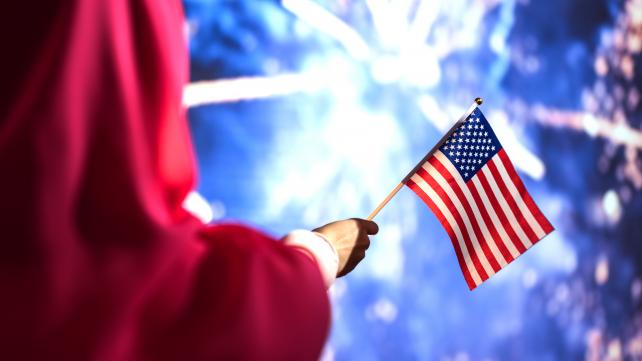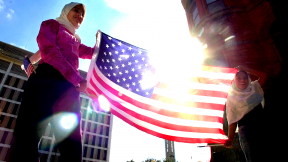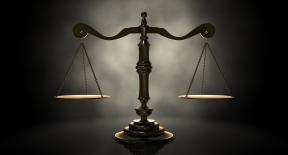
The Fourth of July is often celebrated with flags, fireworks, barbecues, and parades. But as political polarization worsens the divide between Americans, the definition of this love of country has also changed.
Generally, those on the more conservative end consider patriotism an acceptance of America as it is. It is often expressed in slogans like "America: love it or leave it". Criticism of its past history of racism, genocide, and other crimes must be limited, and its good accepted. The recent debate over teaching Critical Race Theory in schools is a reflection of this divide.
On the other hand, Americans who lean more liberal and left of the political spectrum argue that patriotism means caring enough about the country they love to criticize and question its leaders when it is taking the wrong course. This is why many activists have explained their opposition to American policies on wars we have waged, damage to the environment we have engaged in, racism, bigotry, and other ills as based on wanting America to be better.
Where do Muslims fit in this debate?
For a number of those who may have come from countries where speaking up and speaking out could result in dangerous blowback, America is virtually heaven on earth, needing little or no criticism. They have seen far worse, so for them, the glass is half full. It’s not perfect, but it is far better than they have seen and experienced first-hand.
It may also be those who have traditionally experienced comparatively less racism or prejudice, at least based on their external appearance. Fifty percent of Muslims polled by the Institute of Social Policy and Understanding who identified as white voted for Trump in 2020, for example.
For other Muslims, America’s present and future cannot get better unless it reckons with crimes like racism and police brutality. The ISPU found that at 65%, Muslims are the most likely group surveyed to support coalition building with racial justice activists. This was compared to 54 percent of Jewish Americans, 42 percent of Catholics, 37 percent of Protestants, 30 percent of white Evangelicals, and 44 percent of the general public.
This is the kind of patriotism we need to encourage - not uncritical acceptance, but a willingness to criticize to make our nation better for all. We are required to speak and stand up for justice in all of our affairs as Muslims (Quran 4:135). This is not restricted to our personal affairs. It extends to wherever we see injustice being committed - including in our own nation.
Muslims need “balanced patriotism”
This issue is not one ideological leanings either. We can strike a balance between being sincerely and openly grateful to live in a country where we can freely practice our speech, speak our minds, and live in peace and security. That does not make us small-minded nativists.
At the same time, we can also vocally and actively question our government’s policies at home and abroad that fall short of the justice we claim is a hallmark of our nation. This is why America is a democracy. Government representatives are supposed to represent their constituents' concerns as they swear to uphold the Constitution. Doing so does not make us ungrateful for the blessings we enjoy.
Allah reminds us that we are supposed to be the people of the “middle way” (Quran 2:143), upholding what is right in all circumstances, favoring no party, and being honest and courageous in doing so. This means our love for America must be tempered with honest criticism; it also means our honest criticism is tempered with love.
The Prophet loved his country - and criticized it
Prophet Muhammad, peace and blessings be upon him, loved his birthplace, Makkah. He was heartbroken to leave it. But he spent years trying to change it for the better. He recognized that love of his land did not supersede love of Truth and Justice.
This Fourth of July, amid the fireworks and food, let us assess our patriotism and ask ourselves: what kind of commitment to America will benefit our children, our neighbors, the world, and us? What kind of patriotism can we espouse and be accountable for when we meet our Maker? Which patriotism will heal the wounds of America and the world?







Add new comment